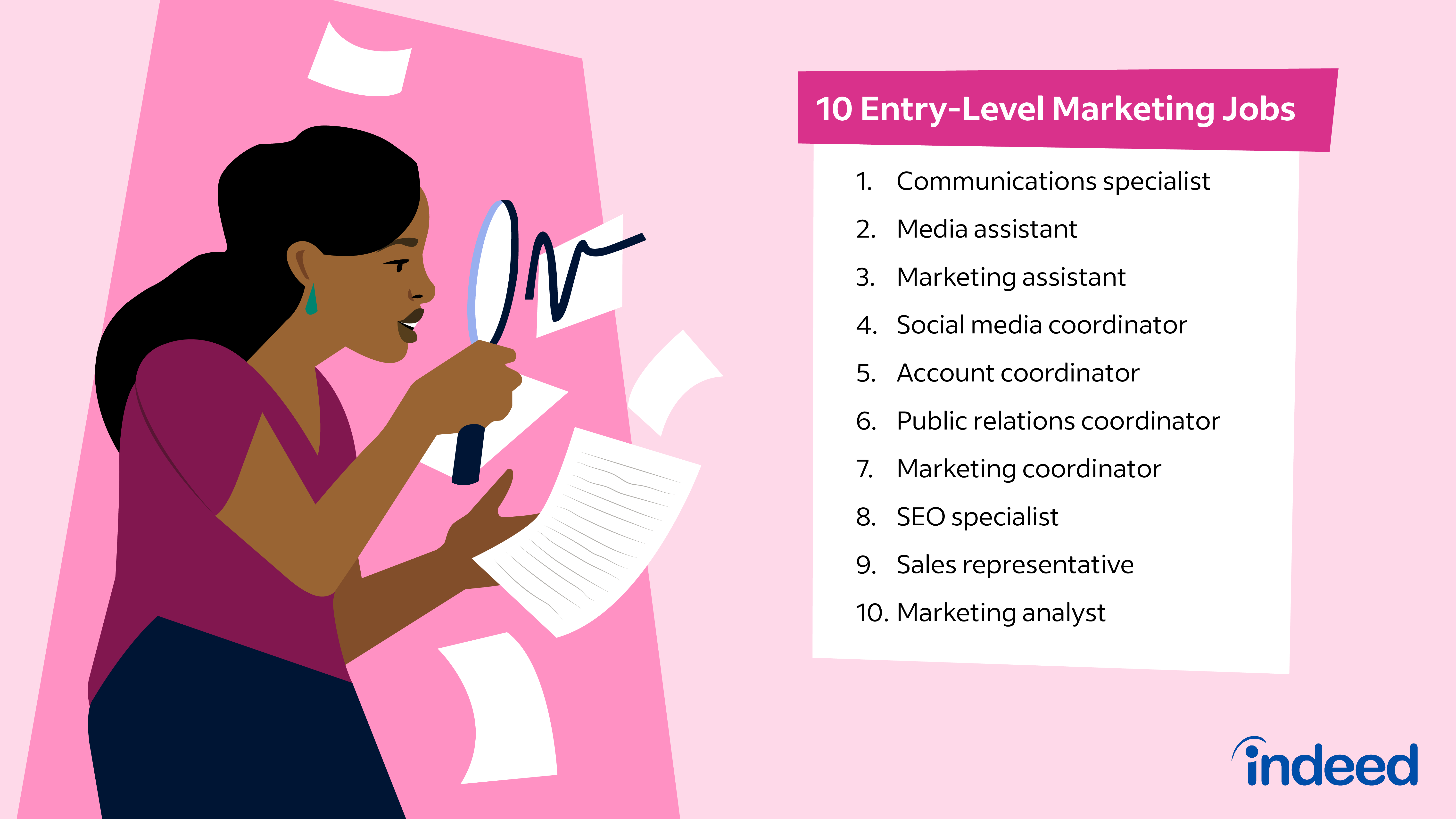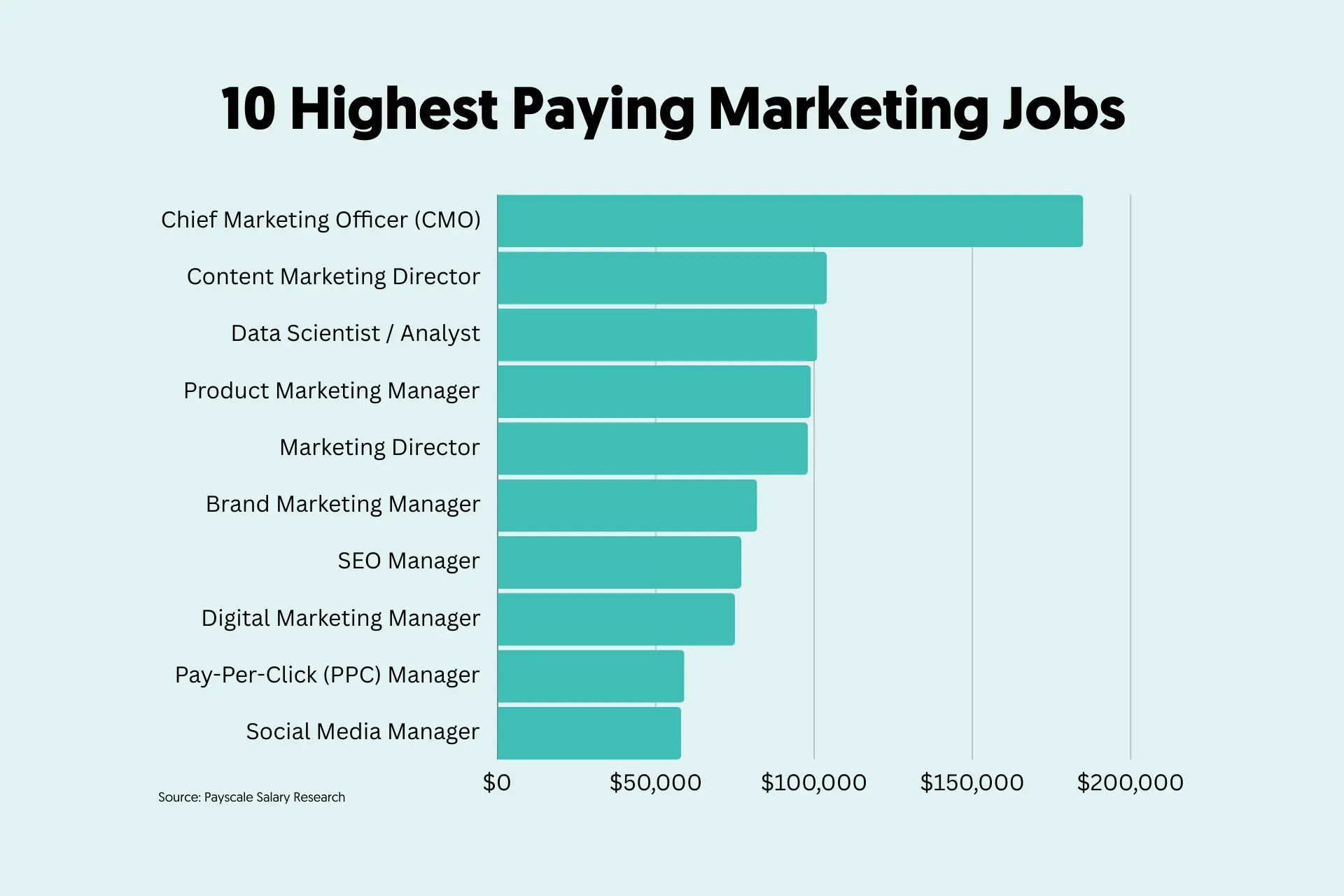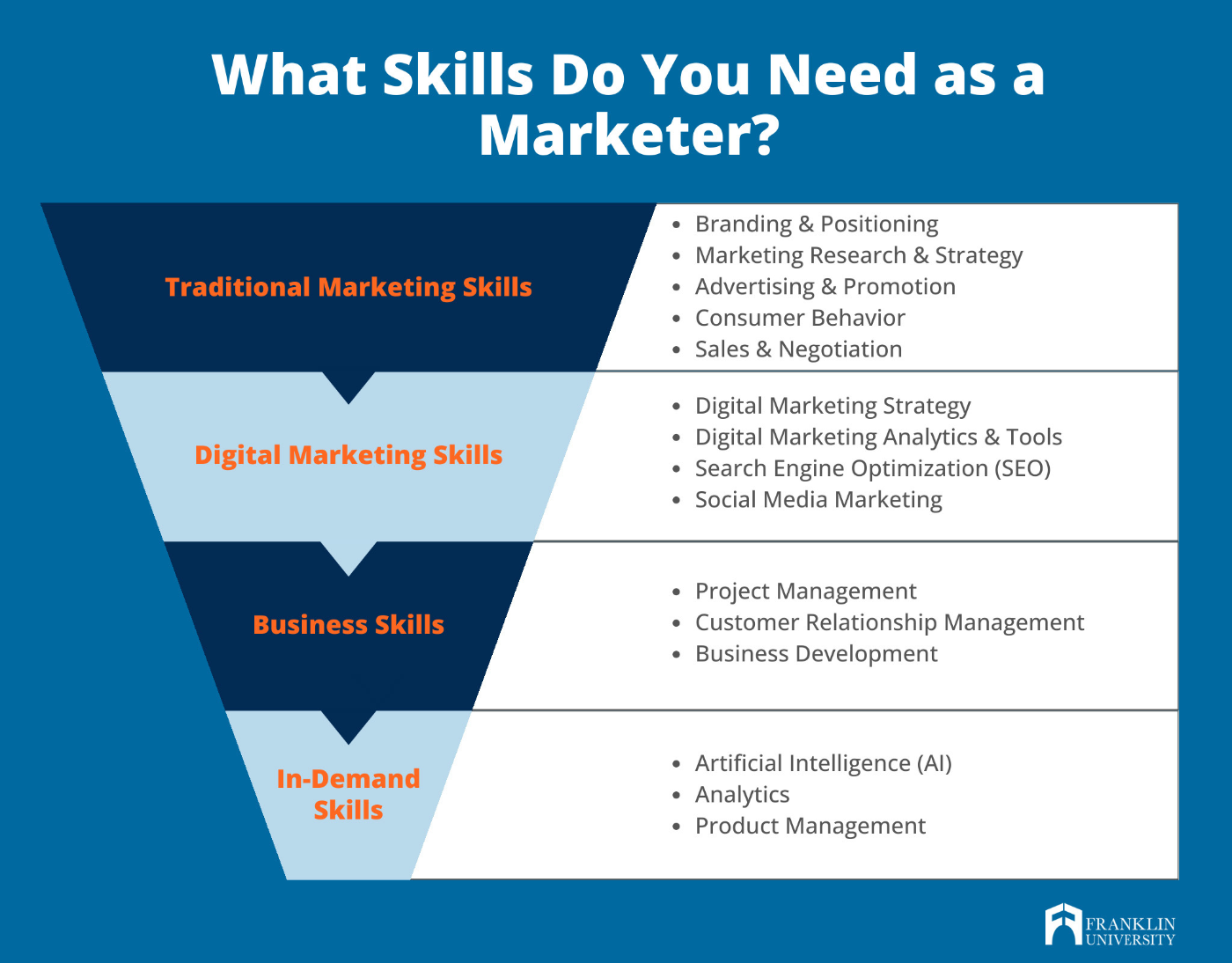A marketing degree opens doors to a wide array of career opportunities in today’s dynamic and competitive business landscape. This versatile qualification equips graduates with essential skills in communication, strategy, data analysis, and consumer behavior, making them valuable assets across industries. From traditional roles in advertising and brand management to emerging fields like digital marketing and social media strategy, the possibilities are vast. Whether you aspire to work for a multinational corporation, a creative agency, or even start your own business, a marketing degree provides the foundation to thrive. This article explores the diverse career paths and opportunities available to marketing degree holders.
What Can You Do with a Marketing Degree?
A marketing degree opens up a wide range of career opportunities across various industries. With the skills and knowledge gained from a marketing program, graduates can pursue roles in advertising, digital marketing, market research, brand management, and more. The versatility of a marketing degree allows professionals to adapt to the ever-changing business landscape and contribute to the growth and success of organizations.
See Also What can you do with a marketing degree?
What can you do with a marketing degree?1. Pursue a Career in Digital Marketing
Digital marketing is one of the most in-demand fields today. With a marketing degree, you can specialize in areas such as search engine optimization (SEO), social media marketing, content marketing, and email marketing. These roles require a deep understanding of online consumer behavior and the ability to create strategies that drive engagement and conversions.
2. Work in Advertising and Public Relations
A marketing degree prepares you for roles in advertising and public relations (PR). You can work as an advertising manager, creating campaigns that promote products or services, or as a PR specialist, managing the public image of a company or individual. Both fields require strong communication skills and creativity.
See Also What kind of jobs can I get with a Media and Communications degree?
What kind of jobs can I get with a Media and Communications degree?3. Explore Market Research and Analysis
Market research is crucial for understanding consumer preferences and market trends. With a marketing degree, you can work as a market research analyst, collecting and analyzing data to help companies make informed decisions. This role involves using tools and techniques to interpret data and provide actionable insights.
4. Enter Brand Management
Brand managers are responsible for maintaining and enhancing a company's brand image. With a marketing degree, you can oversee brand strategy, product development, and marketing campaigns. This role requires a combination of creativity and analytical skills to ensure the brand resonates with its target audience.
See Also What the Hell Do You Do With a Marketing Degree?
What the Hell Do You Do With a Marketing Degree?5. Venture into Sales and Business Development
A marketing degree can also lead to careers in sales and business development. These roles involve identifying new business opportunities, building relationships with clients, and driving revenue growth. Strong interpersonal skills and a strategic mindset are essential for success in these positions.
| Career Path | Key Skills Required | Industry Examples |
|---|---|---|
| Digital Marketing | SEO, Social Media, Content Creation | E-commerce, Tech Companies |
| Advertising & PR | Creative Campaigns, Media Relations | Agencies, Corporate Communications |
| Market Research | Data Analysis, Consumer Insights | Consulting Firms, Retail |
| Brand Management | Brand Strategy, Product Development | Consumer Goods, Fashion |
| Sales & Business Development | Client Relations, Strategic Planning | B2B Services, Startups |
What jobs can I get with a marketing degree?

 Lead Generation Career Paths
Lead Generation Career Paths1. Digital Marketing Specialist
A Digital Marketing Specialist focuses on creating and managing online marketing campaigns. This role involves using various digital channels to promote products or services. Key responsibilities include:
- Developing and executing SEO strategies to improve website visibility.
- Managing social media accounts and creating engaging content.
- Analyzing campaign performance using tools like Google Analytics.
2. Brand Manager
A Brand Manager is responsible for maintaining and enhancing a company's brand image. This role involves strategic planning and execution to ensure brand consistency. Key responsibilities include:
- Developing brand strategies to increase market share.
- Collaborating with marketing teams to create advertising campaigns.
- Monitoring market trends and competitor activities to adjust strategies accordingly.
3. Market Research Analyst
A Market Research Analyst gathers and analyzes data to help companies understand market conditions. This role is crucial for making informed business decisions. Key responsibilities include:
- Conducting surveys and focus groups to collect data.
- Analyzing data to identify consumer preferences and market trends.
- Preparing reports and presenting findings to stakeholders.
4. Public Relations Specialist
A Public Relations Specialist manages the public image of a company or individual. This role involves creating and maintaining a positive public perception. Key responsibilities include:
- Writing and distributing press releases to media outlets.
- Organizing public events and media conferences.
- Responding to media inquiries and managing crisis communication.
5. Sales Manager
A Sales Manager oversees the sales team and develops strategies to meet sales targets. This role involves a combination of leadership and strategic planning. Key responsibilities include:
- Setting sales goals and developing plans to achieve them.
- Training and mentoring sales representatives.
- Analyzing sales data to identify areas for improvement.
Is a marketing degree a good degree to get?

What Career Opportunities Does a Marketing Degree Offer?
A marketing degree opens doors to a wide range of career opportunities across various industries. Graduates can pursue roles such as:
- Marketing Manager: Overseeing campaigns and strategies to promote products or services.
- Digital Marketing Specialist: Focusing on online channels like social media, SEO, and email marketing.
- Market Research Analyst: Analyzing data to understand consumer behavior and market trends.
What Skills Will You Gain from a Marketing Degree?
Pursuing a marketing degree equips students with a diverse set of skills that are highly valued in the business world. These include:
- Strategic Thinking: Developing effective marketing plans to achieve business goals.
- Communication Skills: Crafting compelling messages for different audiences.
- Data Analysis: Interpreting market data to make informed decisions.
How Does a Marketing Degree Compare to Other Business Degrees?
A marketing degree is often compared to other business-related degrees like finance or management. Key differences include:
- Focus on Creativity: Marketing emphasizes creative problem-solving and innovation.
- Consumer-Centric Approach: Understanding and influencing consumer behavior is central to marketing.
- Versatility: Marketing skills are applicable across industries, from tech to healthcare.
What Are the Potential Earnings with a Marketing Degree?
Earning potential with a marketing degree varies based on role, experience, and industry. Some examples include:
- Entry-Level Positions: Starting salaries for roles like marketing coordinators typically range from $40,000 to $50,000 annually.
- Mid-Level Roles: Marketing managers can earn between $70,000 and $100,000 per year.
- Senior-Level Positions: Chief Marketing Officers (CMOs) often earn six-figure salaries, sometimes exceeding $150,000.
What Are the Challenges of Pursuing a Marketing Degree?
While a marketing degree offers many benefits, there are challenges to consider:
- Rapidly Changing Industry: Keeping up with evolving trends like digital marketing and AI.
- High Competition: The field is competitive, requiring continuous skill development.
- Pressure to Deliver Results: Marketing roles often involve meeting strict performance metrics and deadlines.
What are 10 careers in marketing?

1. Digital Marketing Specialist
A Digital Marketing Specialist focuses on creating and managing online marketing campaigns. They use various digital channels to promote products or services, including social media, email, and search engines. Key responsibilities include:
- Developing and executing digital marketing strategies.
- Analyzing campaign performance using tools like Google Analytics.
- Optimizing SEO and SEM efforts to increase online visibility.
2. Content Marketing Manager
A Content Marketing Manager oversees the creation and distribution of content to attract and engage a target audience. They ensure that the content aligns with the brand’s voice and goals. Responsibilities include:
- Planning and managing content calendars.
- Collaborating with writers, designers, and other creatives.
- Measuring content performance and adjusting strategies accordingly.
A Social Media Manager is responsible for managing a brand’s presence on social media platforms. They create and curate content, engage with followers, and analyze social media metrics. Key tasks include:
- Developing social media strategies to increase engagement.
- Creating and scheduling posts across platforms like Instagram, Facebook, and Twitter.
- Monitoring and responding to comments and messages.
4. Brand Manager
A Brand Manager is responsible for maintaining and enhancing a brand’s image and reputation. They work to ensure that all marketing efforts align with the brand’s identity. Responsibilities include:
- Developing brand guidelines and ensuring consistency.
- Conducting market research to understand consumer perceptions.
- Collaborating with advertising and PR teams to promote the brand.
5. Market Research Analyst
A Market Research Analyst gathers and analyzes data to help companies understand market trends and consumer behavior. They provide insights that inform marketing strategies. Key tasks include:
- Designing and conducting surveys and focus groups.
- Analyzing data using statistical software.
- Preparing reports and presenting findings to stakeholders.
6. Public Relations Specialist
A Public Relations Specialist manages the public image of a company or brand. They work to build positive relationships with the media and the public. Responsibilities include:
- Writing and distributing press releases.
- Organizing events and press conferences.
- Responding to media inquiries and managing crisis communications.
7. Advertising Manager
An Advertising Manager oversees the creation and execution of advertising campaigns. They work to ensure that ads effectively communicate the brand’s message. Key tasks include:
- Planning and managing advertising budgets.
- Collaborating with creative teams to develop ad concepts.
- Analyzing the effectiveness of advertising campaigns.
8. SEO Specialist
An SEO Specialist focuses on optimizing websites to rank higher in search engine results. They use various techniques to improve a site’s visibility. Responsibilities include:
- Conducting keyword research and analysis.
- Optimizing website content and structure for search engines.
- Monitoring and reporting on SEO performance.
9. Email Marketing Specialist
An Email Marketing Specialist designs and executes email campaigns to engage customers and drive conversions. They focus on creating personalized and targeted email content. Key tasks include:
- Developing email marketing strategies.
- Designing and coding email templates.
- Analyzing email campaign performance and making improvements.
10. Product Marketing Manager
A Product Marketing Manager is responsible for the marketing strategy of a specific product or product line. They work to ensure that the product meets market needs and is effectively promoted. Responsibilities include:
- Developing product positioning and messaging.
- Creating marketing materials and sales tools.
- Collaborating with sales teams to drive product adoption.
What is the highest paid job in marketing?

What is the Highest Paid Job in Marketing?
The highest paid job in marketing is typically the Chief Marketing Officer (CMO). This role involves overseeing the entire marketing strategy of a company, managing large budgets, and driving brand growth. CMOs are responsible for aligning marketing efforts with business goals, making them critical to a company's success. Their compensation often includes a high base salary, bonuses, and stock options, especially in large corporations or tech companies.
What Does a Chief Marketing Officer (CMO) Do?
A Chief Marketing Officer (CMO) is responsible for leading all marketing initiatives within an organization. Their duties include:
- Developing and executing marketing strategies to drive brand awareness and revenue growth.
- Managing large teams of marketing professionals across various departments like digital marketing, content, and advertising.
- Analyzing market trends and consumer behavior to make data-driven decisions.
What Skills Are Required to Become a CMO?
To become a successful Chief Marketing Officer (CMO), one must possess a combination of technical, leadership, and strategic skills. Key skills include:
- Strategic thinking to align marketing goals with business objectives.
- Data analysis to interpret market trends and measure campaign effectiveness.
- Leadership and communication to manage teams and collaborate with other executives.
What Industries Pay the Highest Salaries for CMOs?
The industries that offer the highest salaries for Chief Marketing Officers (CMOs) are typically those with large budgets and high revenue potential. These include:
- Technology companies, especially in software and hardware sectors.
- Finance and banking, where marketing drives customer acquisition and retention.
- Healthcare and pharmaceuticals, due to the competitive nature of the industry.
What Factors Influence a CMO's Salary?
Several factors influence the salary of a Chief Marketing Officer (CMO), including:
- Company size and revenue, as larger companies tend to offer higher compensation.
- Industry, with tech and finance sectors often paying more.
- Experience and track record, as proven success in driving growth can significantly increase earning potential.
How Does a CMO's Salary Compare to Other Marketing Roles?
A Chief Marketing Officer (CMO) earns significantly more than other marketing roles due to their high level of responsibility. For example:
- Marketing Managers typically earn less, focusing on specific campaigns rather than overall strategy.
- Digital Marketing Directors earn a competitive salary but lack the broad scope of a CMO.
- Brand Managers handle individual product lines and earn less than CMOs.
Frequently Asked Questions from Our Community
What career opportunities are available with a marketing degree?
A marketing degree opens doors to a wide range of career opportunities across various industries. Graduates can pursue roles such as marketing manager, brand manager, digital marketing specialist, market research analyst, and sales manager. Additionally, opportunities exist in public relations, advertising, and social media management. The versatility of a marketing degree allows professionals to work in both corporate and creative environments, making it a highly adaptable qualification.
How does a marketing degree prepare you for the digital marketing landscape?
A marketing degree equips students with the skills needed to thrive in the digital marketing landscape. Courses often cover topics such as search engine optimization (SEO), content marketing, social media strategy, and data analytics. These skills are essential for understanding consumer behavior, creating effective online campaigns, and measuring their success. Additionally, many programs incorporate hands-on projects and internships, providing practical experience in using tools like Google Analytics and marketing automation platforms.
Can a marketing degree help you start your own business?
Yes, a marketing degree can be incredibly valuable for aspiring entrepreneurs. The degree provides a strong foundation in market research, consumer behavior, and branding, which are critical for identifying business opportunities and building a loyal customer base. Additionally, courses in strategic planning and digital marketing can help entrepreneurs effectively promote their products or services. With a marketing degree, you’ll also gain insights into budgeting and resource allocation, which are essential for managing a successful business.
What skills do you gain from a marketing degree?
A marketing degree helps you develop a diverse set of skills that are highly valued in the workplace. These include communication skills for crafting compelling messages, analytical skills for interpreting market data, and creative thinking for developing innovative campaigns. You’ll also learn project management to coordinate marketing efforts and team collaboration to work effectively with colleagues. Furthermore, the degree emphasizes adaptability and problem-solving, enabling you to navigate the ever-changing marketing landscape with confidence.
Leave a Reply


Articles of interest